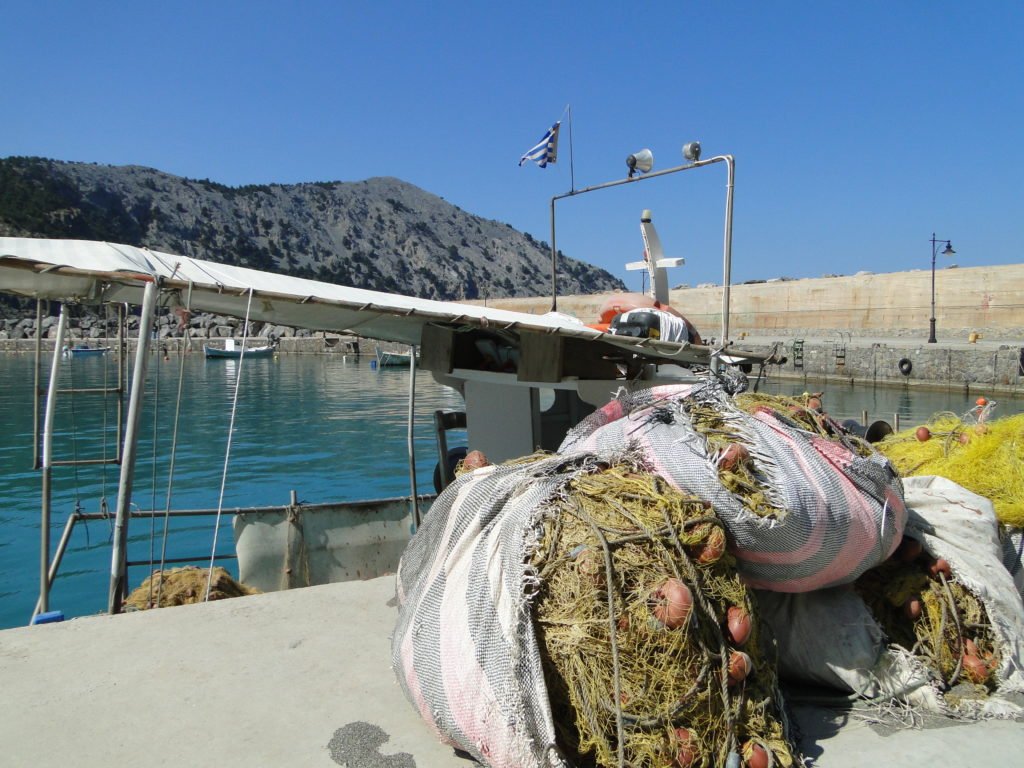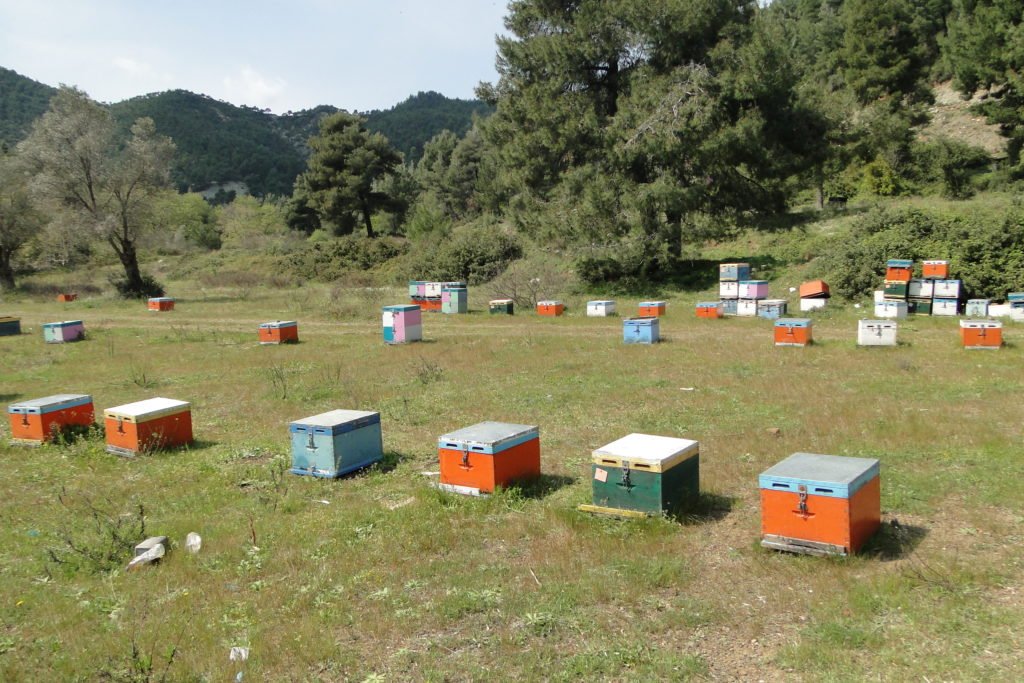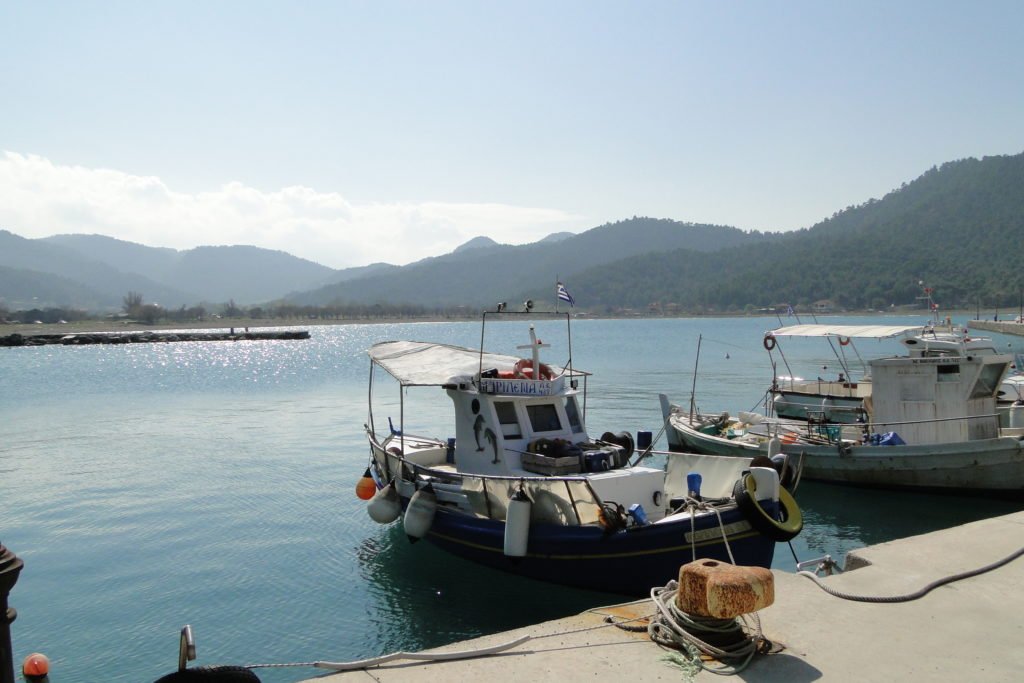Labor Economic
The economy of Pili
In addition to employment in magnesite production, resin production, self-employment in local shops and tourism, its economy revolves mainly around the primary production sector, namely fisheries, apiaries, livestock, agriculture and forestry, sometimes as primary income for the people of Pili and occasionally for a supplement.
Services and goods produced in Pili.

In apiary, the quality and quantity that our place gives, at least nationwide, is known due to the variety of trees and their flowering in many periods of the year and their purity, far from areas with pesticides and industrial pollutants. There are thousands of hives placed by beekeepers all over the country in the forest of Pili, giving them pure honey from pine, heather, fir, thyme etc. There were very few beekeepers in Pili in the past, but today more and more people are engaged in this species, both professionally and as amateurs, but always with passion, knowledge and love for bees and nature.
Our geographical location and the quality of the underwater environment make fishing a prominent position in terms of the quality and taste of local catches. Fish of all categories are equally delicious in any case, while the thrapsala (a type of squid) have a special taste for fishing for both locals and visitors.


The wood in our place is abundant, one could say, in terms of the needs of its inhabitants, since it is “drowned” in the forest and since, for the most part, it is virgin. Thus, almost every year, logging is carried out, which, due to large quantities, gives the possibility and the sale of timber by the Forest Cooperative of Pili, outside the village. Finally, occasionally, local foresters produce high-quality charcoal from wildwood in the area, which is enough to meet the needs of its inhabitants.
Livestock and the agriculture in Pili, there was more in the old days compared to today. Areas such as the plain of Pili, Aretha and elsewhere, were cultivated with cereals and legumes to cover mainly the needs of each family and not for sale, only perhaps for exchange with other goods. Also, almost every family in the village took care to cultivate their own vineyard to produce the wine of the year. On the other hand, livestock is an occupation that still exists today, with the breeding of lambs, cattle, and pigs. The above production gives goat’s milk to local cheese factories and meat, to local butchers and elsewhere. Finally, animals such as chickens, lambs, pigs and rabbits are raised by most families in the village to meet their own needs.

In tourism, Pili offers excellent catering services (restaurants, taverns, etc.) all year round while in accommodation. However, in recent years there have been moves to raise the quality in this category. As a result, there is a small shortage of beds during the high period.
Other shops that exist in Pili are supermarkets, grocery stores, butchers, cafeterias, cafes etc.

Pili has a modern fishing shelter where both fishing and tourist boats can moor, and small boats and speedboats can sail from it since it has a special slide for this purpose.
At the entrance of the village, there is a Municipal Football and Basketball Court. There is also a Primary School and Kindergarten, as well as a First Aid Clinic.
The square is one kilometre from its entrance and in the center of the village, right next to the Church of St. Barbara. Finally, Pili is covered by a Cosmote mobile network and a fixed internet network with a speed of 24 Mbps.
The indelible signs of the intellectual and manual activity of Pili residents through the passage of the centuries.
Monuments
Places of historical importance
Resin cultivation
The timeless gear of the economy
Magnesite
The great mineral of our place
